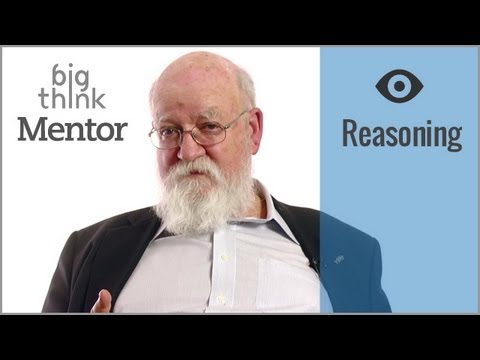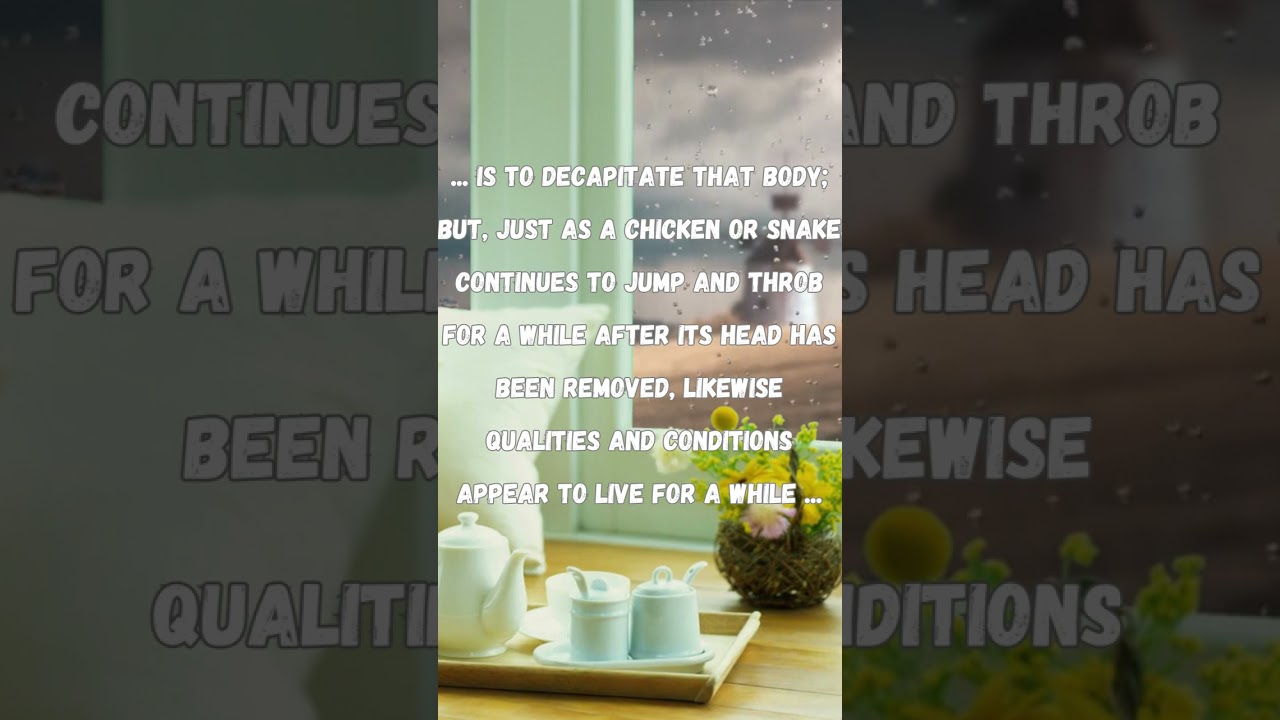Big Think
How to Think Like a Philosopher, with Daniel Dennett
Watch the newest video from : https://bigth.ink/NewVideo
Join Big Think Edge for exclusive videos: https://bigth.ink/Edge
———————————————————————————-
Daniel Dennett, one of the best-known living philosophers and a professor at Tufts University, believes it’s time to unmask the philosopher’s art and make thought experimentation accessible to a wider audience. “How to Think Like a Philosopher,” Dennett’s five-part workshop, is a journey into the labyrinthine mind games played by Dennett and his colleagues
For the more utilitarian-minded, these are mental practices that will improve your ability to focus and think both rationally and creatively.
How to Think Like a Philosopher takes you on a guided tour through many of Dennett’s favorite “tools for thinking.” Along the way, he teaches you:
– The value of “intuition pumps” (or thought experiments) and how to use them.
– How to recognize common rhetorical tricks for manufacturing consent.
– Why free will doesn’t always imply unpredictability.
– How to “twiddle the knobs” of thought, exploring alternatives and the conclusions they lead to.
———————————————————————————-
DANIEL DENNETT:
Daniel C. Dennett is the author of Intuition Pumps and Other Tools for Thinking, Breaking the Spell, Freedom Evolves, and Darwin’s Dangerous Idea and is University Professor and Austin B. Fletcher Professor of Philosophy, and Co-Director of the Center for Cognitive Studies at Tufts University. He lives with his wife in North Andover, Massachusetts, and has a daughter, a son, and a grandson. He was born in Boston in 1942, the son of a historian by the same name, and received his B.A. in philosophy from Harvard in 1963. He then went to Oxford to work with Gilbert Ryle, under whose supervision he completed the D.Phil. in philosophy in 1965. He taught at U.C. Irvine from 1965 to 1971, when he moved to Tufts, where he has taught ever since, aside from periods visiting at Harvard, Pittsburgh, Oxford, and the École Normale Supérieure in Paris.
His first book, Content and Consciousness, appeared in 1969, followed by Brainstorms (1978), Elbow Room (1984), The Intentional Stance (1987), Consciousness Explained (1991), Darwin’s Dangerous Idea (1995), Kinds of Minds (1996), and Brainchildren: A Collection of Essays 1984-1996. Sweet Dreams: Philosophical Obstacles to a Science of Consciousness, was published in 2005. He co-edited The Mind’s I with Douglas Hofstadter in 1981 and he is the author of over three hundred scholarly articles on various aspects on the mind, published in journals ranging from Artificial Intelligence and Behavioral and Brain Sciences to Poetics Today and the Journal of Aesthetics and Art Criticism.
Dennett gave the John Locke Lectures at Oxford in 1983, the Gavin David Young Lectures at Adelaide, Australia, in 1985, and the Tanner Lecture at Michigan in 1986, among many others. He has received two Guggenheim Fellowships, a Fulbright Fellowship, and a Fellowship at the Center for Advanced Studies in Behavioral Science. He was elected to the American Academy of Arts and Sciences in 1987.
He was the Co-founder (in 1985) and Co-director of the Curricular Software Studio at Tufts, and has helped to design museum exhibits on computers for the Smithsonian Institution, the Museum of Science in Boston, and the Computer Museum in Boston.
———————————————————————————-
TRANSCRIPT:
Daniel Dennett: Intuition pumps are sometimes called thought experiments. More often they’re called thought experiments. But they’re not really formal arguments typically. They’re stories. They’re little fables. In fact, I think they’re similar to Aesop’s fables in that they’re supposed to have a moral. They’re supposed to teach us something. And what they do is they lead the audience to an intuition, a conclusion, where you sort of pound your fist on the table and you say, “Oh yeah, it’s gotta be that way, doesn’t it.” And if it achieves that then it’s pumped the intuition that was designed to pump. These are persuasion machines. Little persuasion machines that philosophers have been using for several thousand years.
I think that intuition pumps are particularly valuable when there’s confusion about just what the right questions are and what the right — what matters. What matters to answer the question. I think we’re all pretty good at using examples to think about things and intuition pumps are usually rather vivid examples from which you’re supposed to draw a very general moral. And they come up in many walks of life. Anytime you’re puzzled…
Read the full transcript at https://bigthink.com/videos/daniel-dennett-on-intuition-pumps
Source


@ Jacob Harrison – Dennett's full workshop is available on Big Think Mentor – you can get full access and test the waters with a 14-day free trial (follow the link in the video description). Thanks for watching!
A good an informative book!
So what would you think about biological robotics>?
So what he's explaining is a intuition pump about intuition pumps right? I wonder what happens when you turn the knobs on it…
Hearing bullshit all around me inspired me most to figure out why exactly it stank so bad
Philosophy is dead and the sooner people realize this, the better.
I must say, Philosophy is really useless, under a materialism and capitalism context. If you are humanist I guess philosophy will be extremely helpful tools to think of yourself. I hope that people won't be fooled by some comments which only start from a materialistic perspective.
"Philosophy of science is about as useful to scientists as ornithology is to birds.” Feynman
I dont think I want to listen to this guy. He thinks conscioussness doesnt exist
I HATE PHILOSOPHY
Be high in both intrapersonal and interpersonal intelligence.
What people can't seem to accept is that philosophy is a skill — much like playing the piano — so quite naturally you need good training and lots of practice to become remotely good at it. Instead of accepting this, they adopt the attitude that what they're doing — the garbage they call thinking or reasoning — is on par with what trained philosophers are doing.
Conor McGregor looks exactly like a young you.
my mom is a woman , don't speak to strangers if you don't know them
I enjoy listening to atheists like Richard Dawkins, Sam Harris, the late Christopher Hitchens, Dennett, James Randi, Seth Andrews, Jaclyn Glenn and Dan Barker etc.
First develop a persona of ultimate patronising smugness, then grow a big beard. Done
Well I have existential intelligence so I want to improve on it, yeah.
Daniel Dennett, with All my Respects – please allow me to say some words. Thank you. In the parliamentary debate with Jeremy Corbyn Boris Johnson said that his government would uphold the rights of journalists and whistleblowers. This means that he is going to support Julian Assange who is a journalist and offers a platform for whistleblowers exposing war crimes, constructed war reasons and other crimes. To defend freedom of information is important. Hence I would like to ask you to say some sentences supporting the freedom of
Julian Assange.
Sincerely and FREEDOM for Assange!
Michael
Haas
How to think like a philosopher: Figure out how Daniel Dennett thinks and think the opposite.
How to be a philosopher: take conventional ideas and overthink them until you come up with you own little terms. Oh lookie i have a doo hikie now! Look what i did!
I am a philosopher by birth
You're actually metaphorically right on. A W
After I found philosophy, my life starting to change. My thinking skill increases. I'm more quiet, observe & listen more. Philosophical topic that I interested into is existence. Purpose of individual's existence & essential meaning of life. My high school didn't teach me these. I'm learning it all by myself.
Is this a low key shot at Sam Harris and his famous of infamous thought experiments? Lol
Single in the womb. Single till the tomb ✊🏻
música antiga do mrpoladoful no final
So this is the dude obsessed with Darwin.
Hello bro how are you this a true statement
الفلسفة حكمة الأغبياء ، ما أجمل حكمة الله في كتاب الله العزيز الحكيم .لا اله الا الله .
Step one: grow beard
Step two: start questioning society and life.
Brother I am Zalba as fuck do not EVER try to preach to me
So essentially, when given an answer. don't just take it at face value, but mess with it and see if it falls apart. If it does, then figure out why.
How to think? Think.
It's the same outro music as the Personality Hacker (personality psychology) podcast. Did anyone notice that?
Why hasn’t anyone tested the theory on first sign of civilization by mead or Freud???
I'm here